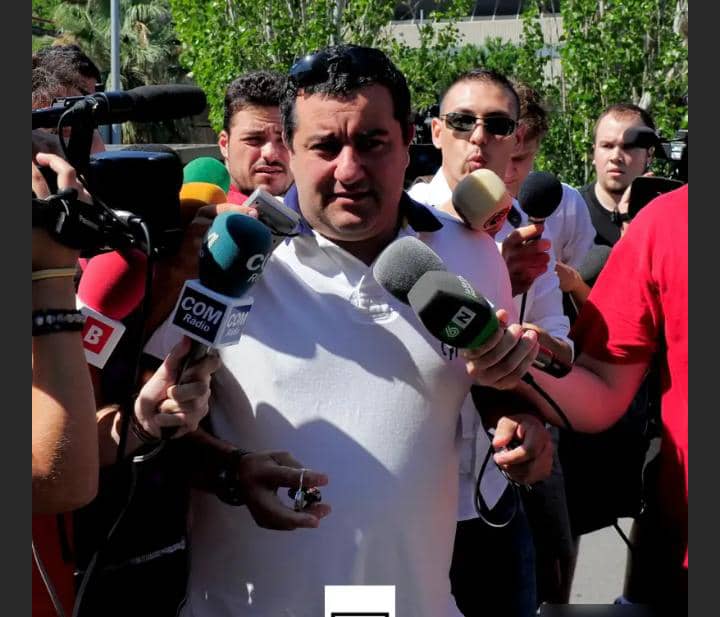Mino Raiola, the Italian, who has sadly passed away at the age of 54, will forever be remembered as one of football’s most controversial and colourful characters
Raiola had an accountancy firm called Maguire Tax & Legal, its name inspired by an Oscar-winning movie starring Tom Cruise.
Many of his adversaries within the game were offended by the insinuation he was any way similar to Jerry Maguire, the fictional sports agent who comes to champion love (or ‘kwan’) over greed.
However, his clients would always tell you the comparison was just; that he formed a special bond with each and every one of them.
Such polarised opinions perfectly illustrated the way in which Raiola divided the football world.
He will forever be remembered as one of its most controversial yet compelling characters, seemingly loved and loathed in equal measures, a self-styled super-agent doing right by clients, but wrong by clubs.
The 45-year-old was born in Agri, Italy, but his parents emigrated to Netherlands when he was still an infant, settling in Haarlem.
It was in this Dutch municipality that Raiola was raised before taking the first steps to becoming arguably the ‘king of super-agents’.
Raiola was a moderately talented player in his youth and he played for his local club before quitting the game at just 18.
However, while he started studying law, he had not lost his passion for football, electing to take charge of the Haarlem youth team.
Even at such a tender age, Raiola was a straight-talker with a distinct lack of respect for any figure of authority other than his restaurateur father.

“The president of Haarlem came to eat with us every Friday,” he explained in an interview with Il Secolo XIX in 2011. “I was always telling him that he knew nothing about football.
“One day he takes me aside and says: ‘Listen, you try it.’ He appointed me sporting director.”
Raiola, though, became frustrated by his inability to make what he believed were the requisite changes due to a lack of funds.
However, with Dutch players very much in vogue in the mid-1980s, he saw that there was money to be made in selling his adopted nation’s top footballing talent to Italy, which was then the centre of the footballing universe.
Raiola, having honed his skills as a mediator while working as a broker for Dutch businessmen with commercial interests in Italy, negotiated a deal with the players’ union in the Netherlands that enabled him to represent all of the country’s footballers.
His goal at this point was to establish a special working relationship with Napoli, “the club of my heart”. However, the deal collapsed.
“I called [then Partenopei president Corrado] Ferlaino and we started the collaboration,” he later explained.
“I offered him [Dennis] Bergkamp for 700 million lire [€362,000]. He hesitated. Two years later [1993], he offered €14 million, but I gave the player to Inter.”
With the Bergkamp deal, which also saw Wim Jonk join the Nerazzurri from Ajax, Raiola had established himself as a major player in Serie A, the deal coming as it did a year after Bryan Roy’s successful switch from Amsterdam to Foggia.
What was clear at this juncture was that Raiola was as adept at pleasing his clients as upsetting their clubs.
Indeed, Ajax, who had profited substantially from Raiola-arranged deals during the early 1990s, were less enamoured with the way in which star forward Zlatan Ibrahimovic left for Juventus in 2004.